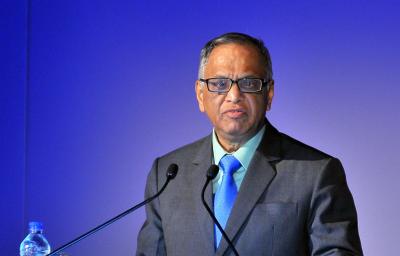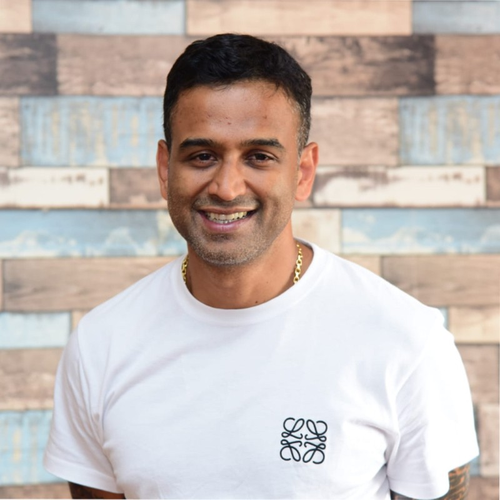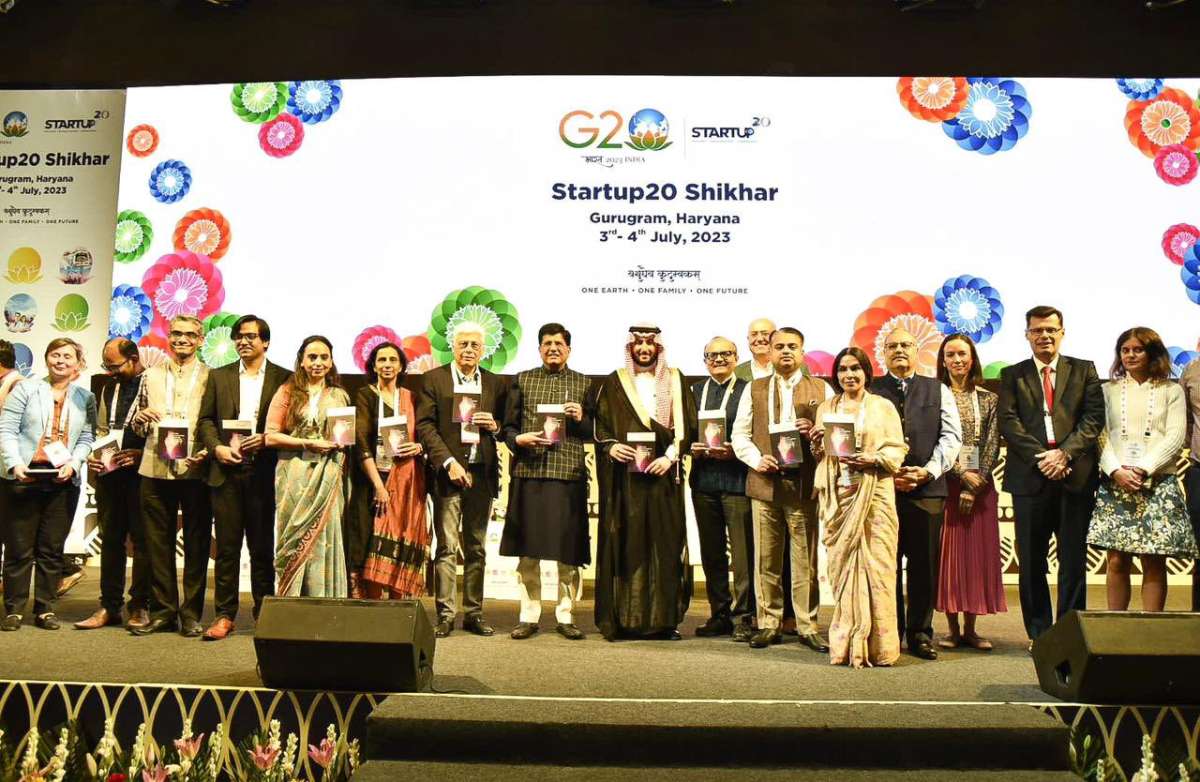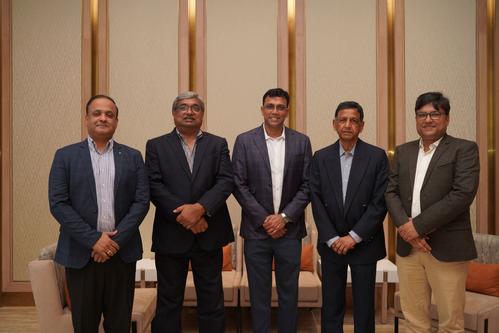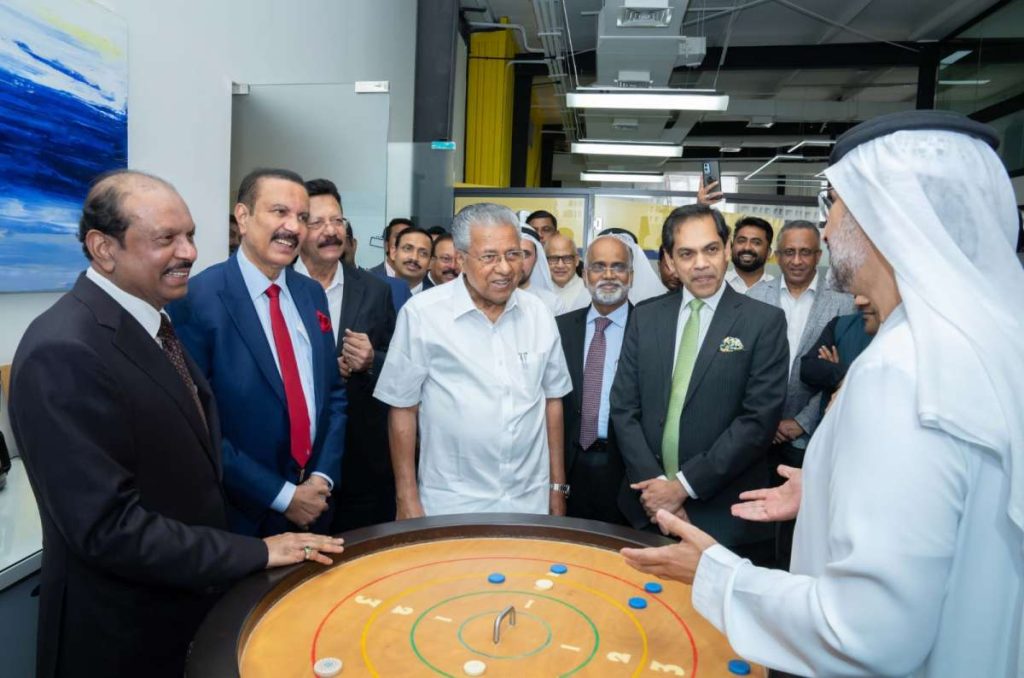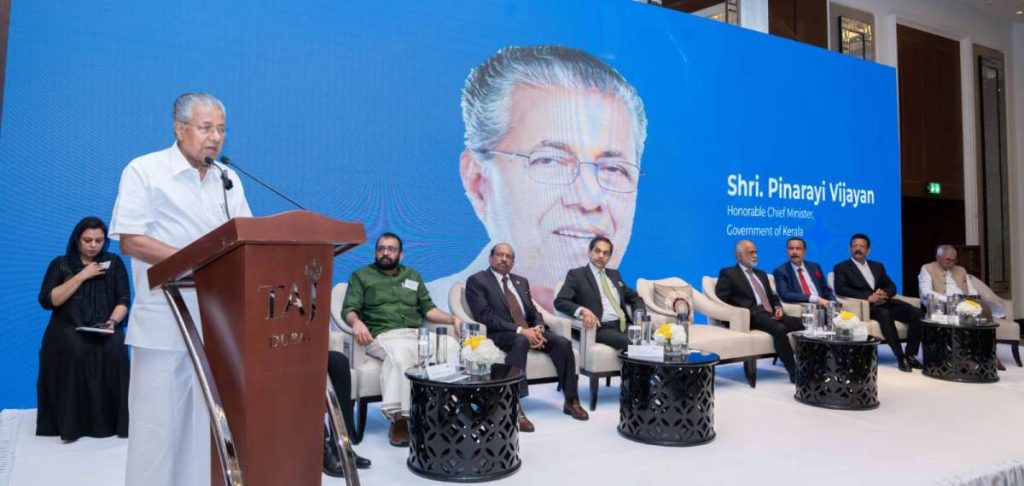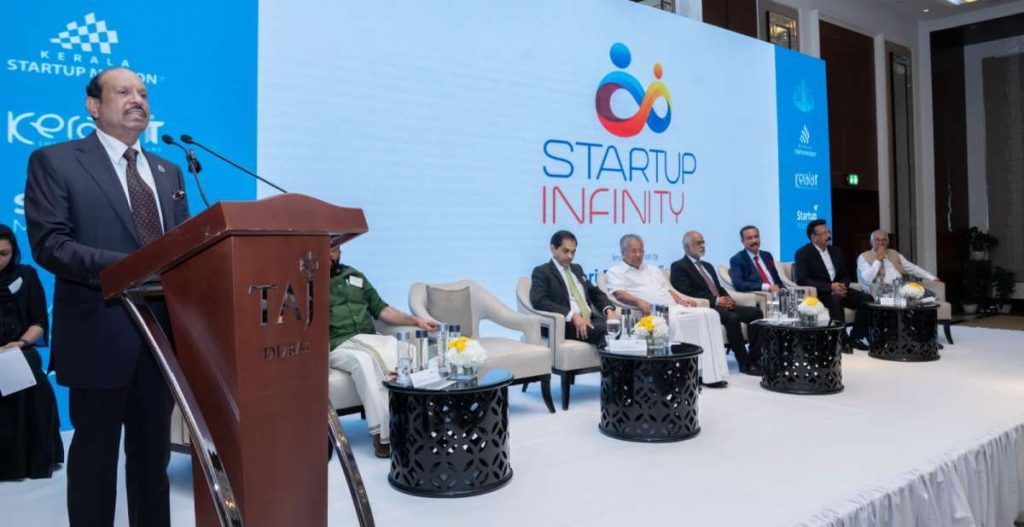India has proposed the adoption of a standard framework to define startups, which is also a part of the policy communique…reports Asian Lite News
Startup20 India’s Chair Dr. Chintan Vaishnav has urged G20 leaders to raise annual investment in the global start-up ecosystem to $1 trillion by 2030. This comes days before the Startup20 Engagement Group under India’s G20 Presidency is slated to hold its summit meeting in Gurugram on 3rd and 4th July.
Stating that Startup20 aims to harmonise the global startup ecosystem while retaining the autonomy of local and national startup ecosystems, Vaishnav said that India has proposed the adoption of a standard framework to define startups, which is also a part of the policy communique, to ensure that the global startup ecosystem can become interoperable.
The NITI Aayog has said that the final policy communique arrived at in the past six months will lay the foundation for a transformative and inclusive startup ecosystem to foster economic growth, innovation and cross-border collaboration.Stating that NASSCOM and VCs have proposed a startup maturity model, Vaishnav said that a start-up governance standard will also be proposed as there’s no common due diligence standard at present.
While he said that the existing definitions will be accommodated, he termed the acronym LASSI as representative of 5 components of the start-up definitional framework; where L stands for legal entity, A for age, S for size in terms of revenue & people, S for scalability and I for the nature of innovation in the startup.
While he clarified that the framework is recommendatory and not mandatory in nature, he quipped on a lighter note that it’s up to the member nations to choose components from LASSI to decide its flavour, adding that nations embracing all components of the acronym will make interoperability easier and will elicit more confidence in the investors.
To ensure continuity for the initiative beyond India’s G20 Presidency, he said that the group is proposing a globally networked institution of existing start-up related agencies and nodal bodies within G20 member countries.
He stated that the network of agencies can drive the global startup ecosystem agenda while supporting national or regional nodes to implement ideas proposed by the group, expressing hopes that the network will become stronger in future to implement what comes out of Startup20 every year.
The first draft of the core Recommendation and Policy Directives of the Policy Communique` was made public for comments on May 23. Based on the draft and comments received the discussions were held in Goa.
The communique proposes arriving at a common framework for defining startups as the first step. With agreement reached on the framework, identification of startup becomes easy for hand holding and promotion.
The engagement group has drawn up a list of support measures that should be extended to the sector based on the reports of its five task forces on foundation, alliances, finance, inclusion and sustainability.
Once the definition framework is ready, the foundation taskforce also talks of aligning the existing definitions of member countries to the definition framework agreed to at the G20.
The alliances taskforce recommendations include adopting key startup-specific policies, local regulations and best practices that enable startups to smoothly access markets across G20 nations and even access to government contracts.
For hand holding startups in accessing markets across G20, the draft communique also talks of designated government or private agencies.
Under alliances, the countries are trying to ensure that there is some form of platform to promote cooperation between key stakeholders of the startup ecosystem such as incubators and regulators.
The communique also talks of policies for easy navigation of entrepreneurs across G20 nations and a platform for startups to access mentors within the G20 network.
The finance taskforce of the engagement group has called for facilitating startups’ access to public capital markets across G20 nations by enabling cross-border listings and tax concessions.
It also stresses on facilitating flow of public and private capital into the startup ecosystem by promoting various mechanisms such as fund-of-funds (FOF), corporate venture funds (CVC), and university endowment fund. Startups of the grouping should also be able to access debt and venture debt products.
Other two task forces of the startup engagement group – inclusion and sustainability. The sustainability task force’s recommendations that are part of the communique are curating a framework to identify startups focused on Sustainable Development Goals and develop a capital inflow framework for them, including patient capital and options for longer-term grant, debt or equity.
Meanwhile, the third sustainable finance working group (SFWG) meeting of G20 has recommended supporting early-stage climate-tech startups, focusing on climate mitigation, carbon capture technologies and adaptation to the changing environment.
Geetu Joshi, advisor to the government (international economic relations) and India Chair, SFWG of G20 said voluntary recommendations were made to bring out policies and financial instruments to support private capital investments in green and low carbon technologies and expand de-risking facilities.
The SFWG has finalised key deliverables for the current year which include mechanisms for mobilisation of climate finance, scaling-up adoption of social impact investment instruments and improving nature-related data and reporting, according to senior officials of the Union Government.
“G20 Technical Assistance Action Plan and the recommendation made to jurisdiction and relevant stakeholders in overcoming data-related barriers to climate investment are also part of deliverables,” she added.
ALSO READ-G20 explores financing future cities


